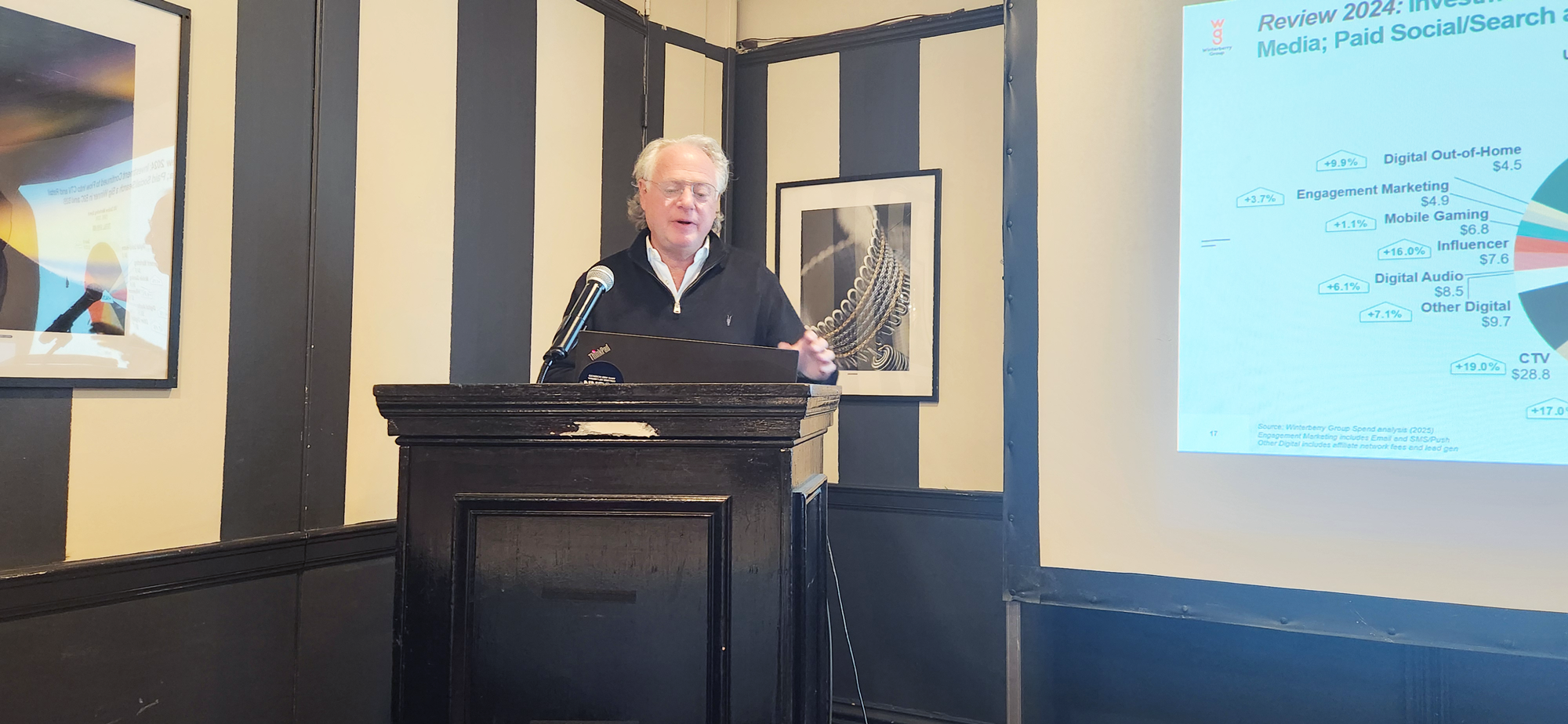

Provocateur:
One thing is certain about marketers: They’re drawn to the new and the next. But too many senior marketers get so distracted by new technologies and next-gen strategies that they overlook one of the most important aspects of the future of marketing: talent.
Progressive marketing executives are well aware of the mission-critical roles science, technology, engineering, and math play in the marketing profession — and across the enterprise — as we’ve transitioned our operations to digital businesses and are now learning how to engage with our consumers via IoT. As an example, think of the fight for great talent in Chief Data Scientist, Chief Digital Officer, and Chief Innovation Officer roles and throughout their teams. So, as business leaders, we have a shared strategic responsibility with our education systems to build a talent pipeline of future employees with STEM (science, technology, engineering, and mathematics) capabilities and curiosities.
Some of the benefits for you, your company, and the city you live in include:
-
Training the next generation, including your kids, to have relevant
skills for the fast-evolving future -
Bolstering the job growth and economic vitality of your community
and company -
Enhancing your company reputation as a community partner who cares
-
Improving future candidate recruitment competitiveness and
succession planning -
Boosting employee moral through community service
-
Feeling satisfied that you’ve given back and paid it forward to create
a positive future

STEM education is important for boys and girls. But, to close the current gender gap of under-representation of women in STEM professions, there are a number of groups, such as Women In Technology International (WITI), whose missions include closing this gender gap by creating STEM programs for girls. According to recent Microsoft research, more than 75 percent of girls who participate in hands-on STEM activities outside the classroom feel a sense of empowerment. This finding drops to under 50 percent for those girls who only experience STEM activities in the classroom.
One way for you to get involved with STEM is to learn about national and local groups that have a focus on educating girls in STEM. I live in Atlanta and was recently introduced to Georgia-based Women In Technology and was invited to experience its annual WIT Girls Job Shadow Week.
I talked with Sandy D. Welfare, executive director of WIT Georgia, one of the largest and longest running STEAM (Art has been added) programs in the country. Welfare explained that WIT Georgia has been educating and empowering girls and women on STEAM opportunities for 26 years. The organization offers free educational programs to students, as well as professional development and networking opportunities to women.
“WIT supports women at every stage of their STEAM careers, from the classroom to the boardroom,” Welfare said. “We do this by telling the stories of successful women and by helping more women write their own story.”
WIT Georgia held its annual WIT Girls Job Shadow Week in Atlanta this past June. Seventy-three high school girls shadowed female STEAM executives from 11 companies — AT&T, BIAS Corporation, Cox Automotive, EY, First Data Corporation, Georgia Pacific, Macy’s Technology, Relus Cloud, Rev.io, SecureWorks, State Farm, SunTrust, The Weather Company – an IBM Business, and Travelport — to get a glimpse into potential career paths.
“The real-time work experience that the young ladies receive is something that cannot be duplicated in the classroom,” Welfare said. “They get exposure to soft skills, especially verbal and written communication, which are important in any industry and job. They meet a STEAM support system of mentors, sponsors, and supporters. They also learn the importance of being adaptable and flexible to keep up with the constantly changing business and tech environment.”
Welfare pointed out that seeing executive women in positions of power and influence encourages more girls towards STEAM careers and empowers them to believe that they, too, can become STEAM executives. “This program has proven to be invaluable to the students who get access to STEAM education, exposure, and experience,” she said.
The students agree. “I really enjoyed learning how business and technology have to work together for the whole company to function,” said Medinah Allah, a student in 10th grade who job shadowed at SunTrust Bank. “I enjoyed learning different types of things, like waterfall versus agile development, and about product management and project management.”
The companies and female executives who participated also reaped numerous benefits from the experience.



AT&T, for example, participates not only because of its committment to STEAM, but also because its leadership understands the importance of working with young girls to pique their interest in STEAM fields.
“We do a lot of training in our company, trying to get our employees more focused on technology, but we realized we need to start working in the community more with high school and middle school girls,” said Resha Gadson, associate director, finance billing operations at AT&T. She added that WIT Georgia’s Girls Job Shadow Week was a great opportunity to do that while
giving the participating girls the opportunity to learn about jobs available at AT&T.
“We hope one day they’ll consider coming to work at AT&T, but, more important, that they’ll consider a STEAM discipline as they make their next move into college or their chosen field,” Gadson said. “It’s about getting them interested, getting
them to be more curious, and making sure they have the right skills for wherever they go next.”
Kima Riding, tech planning and execution at Macy’s, echoed Gadson’s sentiment: “We have a passion to make our company and our community better.” Riding cited an employee resource group within Macy’s Tech called Women At Macy’s
as an example.
“Yes, we are retail, but it takes technology and a lot of it, to keep the company growing and moving forward. We want to make a difference in our communities by educating high school girls on the technology side of Macy’s,” Riding added. “We also wanted this experience to gain insight and feedback from the girls on how we can help, mentor, and advocate for them to pursue and succeed in their STEAM journey. We wanted to give them exposure to the many different aspects of the business, to show them the sky is the limit, and there are so many opportunities for them. They can move around and not be locked into one area. Business and technology go hand-in-hand and their journey can and will include both. You have to understand and listen to the business to be able to deliver the technology.”
Adds Jennifer Thomas, Account Manager, IBM Watson Advertising: “Even if you’re in sales or marketing, technology will eventually take the wheel in your job role.”
As marketing leaders you’re in an ideal position to help your team, your company, and your community see the benefits that Gadson and AT&T, Riding and Macy’s, Thomas and IBM Watson, and their local communities are seeing — not just today, but also into the future when you’ll be looking to hire these enterprising students to support your marketing organization.
I encourage you to rally your company peers to support STEM programs for girls, as well as boys, to build a smarter successful future for your community and company. These articles are a helpful starting point:
-
Another Tech Company Steps Up Its Giving for K-12 STEM Education
-
Business Partnerships to Advance STEM Education: A Model of Success for the Nation

About the Author
Steven Cook is an internationally recognized marketing thought leader, speaker, and writer covering branding, digital transformation, and innovation. His experience includes serving as a Fortune 50 global marketer at P&G and Coca-Cola and as Samsung’s SVP & CMO North America. He built Coca-Cola’s first Global Strategic Innovation group and has built and led iconic B2C & B2B brands globally. He’s been a contributing editor to Adobe’s CMO.com for the past 6 years. As founder of FortuneCMO.co, Steve works with VCs, PEs, and startups in Silicon Valley, across the U.S., and Israel. He’s a founding member of several tech startups, a SXSW Accelerator Board Advisor, and an advisory board member of ARKE.com.








